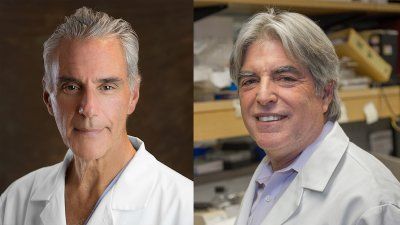University of California San Francisco
Give to UCSF-
-
Former Citi CEO’s $185 Million Gift is UCSF’s Largest Ever
-
$185M Gift Launches UCSF Weill Institute for Neurosciences
In the largest-ever gift to UCSF, the Weill Family Foundation and Joan and Sanford I. “Sandy” Weill have donated $185 million to establish the UCSF Weill Institute for Neurosciences.
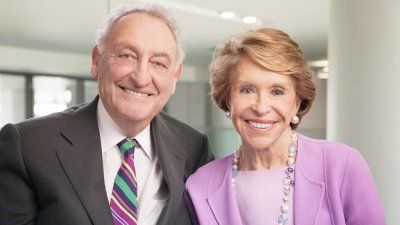
-
Weill Gift Gives UCSF Unprecedented Opportunity to Advance Neurosciences Research
UCSF leaders are lauding the gift by Joan and Sanford I. Weill as transformational, giving the University an unprecedented opportunity to unite and expand its neurosciences community during a revolutionary period in brain discovery.
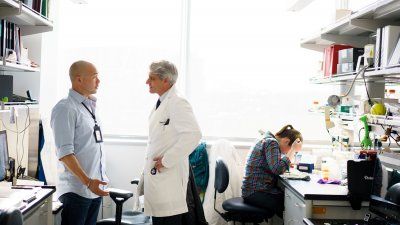
-
Wrapping Up Multiple Sclerosis
With one drug to shut down its progression and another to undo its damage, plus a worldwide effort stalking the origins of multiple sclerosis, MS doesn’t stand a chance.
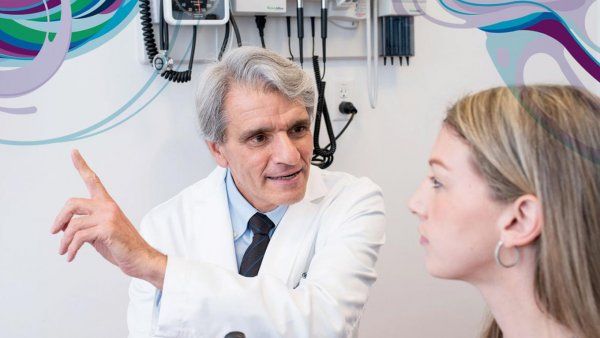
-
Cytokine Triggers Immune Response at Expense of Blood Renewal
Stem cell biologists at UCSF have demonstrated that IL-1 itself directly transforms the blood system by driving blood stem cells in the bone marrow to switch away from their restorative, rejuvenating role in blood renewal and towards emergency production of immune cells.

-
Malaria-Free World Possible Within a Generation, Study Says
Global malaria eradication is possible within a generation, but only with renewed focus, new tools and sufficient financial support, according to a paper published in The Lancet by the Global Health Group’s Malaria Elimination Initiative at UCSF.
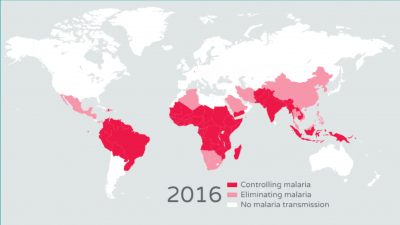
-
Laura Esserman Named to TIME 100 List of Most Influential People in the World
Time magazine has named internationally renowned breast cancer oncologist Laura Esserman to the 2016 TIME 100, the magazine’s annual list of the 100 most influential people in the world.
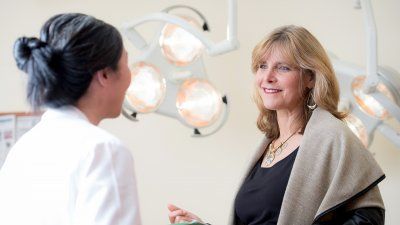
-
Brain’s Immune System May Trigger Frontotemporal Dementia
Frontotemporal dementia, the second most common cause of dementia in people under 65, may be triggered by a defect in immune cells called microglia that causes them to consume the brain’s synaptic connections, according to new research led by UCSF scientists.
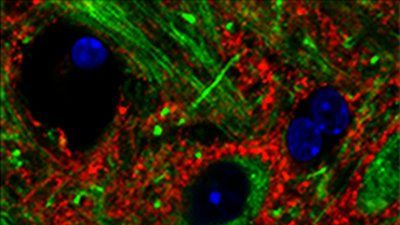
-
The 100 Most Influential People: Laura Esserman and Shelley Hwang
-
UCSF Surgeons Perform Groundbreaking Elbow Transplant
-
Two UCSF Graduate Students Named Soros Fellows
Graduate students Nairi Hartooni and Lindsey Osimiri have been named as recipients of the Paul & Daisy Soros Fellowship for New Americans.
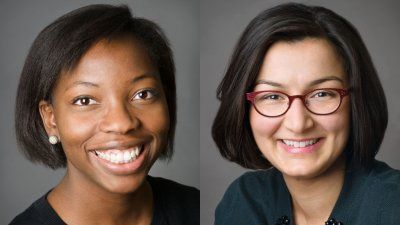
-
Brainard, Rubenstein Elected to American Academy of Arts and Sciences
UCSF neuroscientists Michael Brainard and John L.R. Rubenstein have been elected to the American Academy of Arts and Sciences.
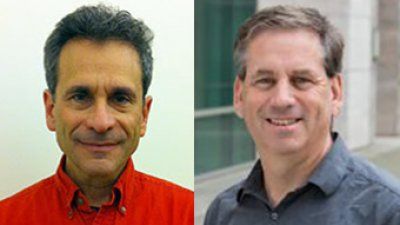
-
New UCSF Center for BRCA Research Expands Care for Increased Cancer Risk
The new UCSF Center for BRCA Research – which spans basic and translational research, clinical care and education – provides a one-stop resource for patients and individuals who carry BRCA1 and BRCA2 mutations.
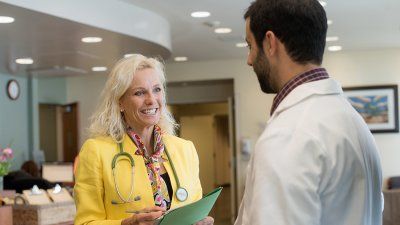
-
Panel Would Make Insurers Help Contain Rising Drug Costs
-
Gene Mutation Makes Tumors Tense, Worsens Patient Prognosis
UCSF researchers have discovered that the chances of survival for patients with pancreatic adenocarcinoma (PDAC) — the most common type of pancreatic cancer — may depend in part on how tense their tumors are.

-
UCSF Mourns Loss of Renowned Lipoprotein Researcher Richard Havel (1925-2016)
The UCSF community is deeply saddened to learn about the passing of Richard Havel, MD, a world-renowned researcher in the field of lipoproteins and the former director of the UCSF Cardiovascular Research Institute.

-
One Patient’s Quest to End Ominous Ringing in Her Ear
It started with a small but persistent noise in her right ear. After other doctors failing to identify the source of the noise, clinicians at UCSF were able to inform the patient that she had a dural arteriovenous fistula in her right sigmoid sinus.
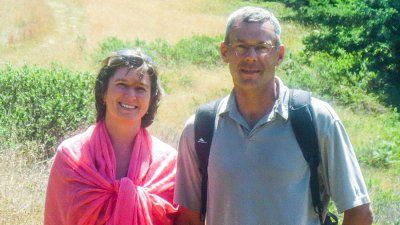
-
Sean Parker, Silicon Valley’s Bad Boy Genius, Wants to Kick the *!$% Out of Cancer
-
Scientists ID Gene Behind Rare Childhood Syndrome
In a study of 10 children published online in the American Journal of Human Genetics on April 14, the researchers linked a constellation of birth defects affecting the brain, eye, ear, heart and kidney to mutations in a single gene, called RERE.
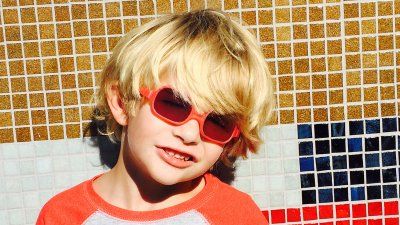
-
Death on the Street: America’s Homeless Population is Growing Older and Sicker
-
UCSF Immunologist to Head New Parker Institute for Cancer Immunotherapy
Renowned UCSF immunologist Jeffrey Bluestone, PhD, has been named president and CEO of the Parker Institute for Cancer Immunotherapy, a national initiative launched with a $250 million grant from The Parker Foundation, established by Silicon Valley entrepreneur Sean Parker.
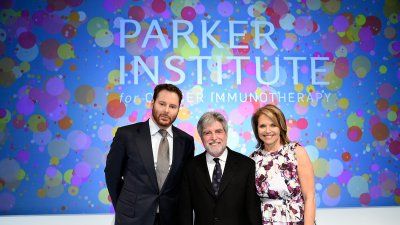
-
New Cancer Immunotherapy Clinic Offers Unique Studies of Promising Treatments
Oncologist Lawrence Fong is leading UCSF’s newly launched Cancer Immunotherapy Program, a clinic and laboratory dedicated to developing and studying cutting-edge immunotherapy treatments.
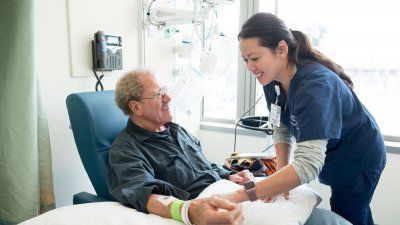
-
Addressing Trauma as a Health Risk
Clinicians at UCSF are taking on trauma as more than just a social issue. They are addressing how it has a staggering impact on a person’s health.
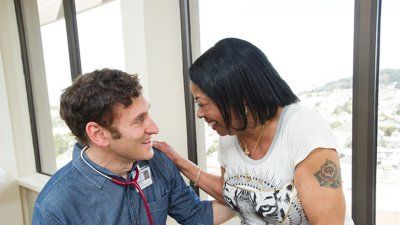
-
UCSF, UC Hastings Launch Innovative Masters Program to Meld Health and Law
UCSF and UC Hastings College of the Law have combined their expertise to offer a new degree program: the Masters of Science program in Health Policy and Law, which begins classes in August.

-
Are E-Cigarettes a Healthy Way to Quit Smoking?
-
Bruce Alberts Named American Association for Cancer Research Fellow
Bruce Alberts has been named one of the 11 newly elected fellows of the American Association for Cancer Research.
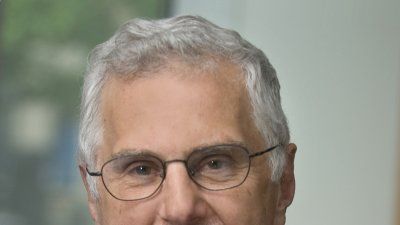
-
Mark Ryder: Bringing Magic to the Classroom
For more than 35 years, dentistry professor Mark Ryder has been devoted to engaging his students during long lectures. His trick: Performing magic routines to illustrate complex scientific concepts.
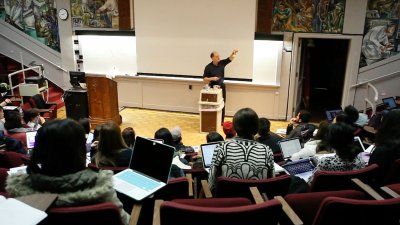
-
The Sugar Conspiracy
-
Berger, Bluestone Named to White House Cancer Moonshot Expert Panel
Mitchel Berger and Jeff Bluestone have been named to a Blue Ribbon Panel of scientific experts, cancer leaders and patient advocates that will help to guide the National Cancer Moonshot Initiative.
